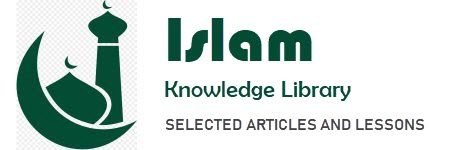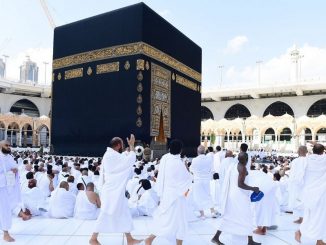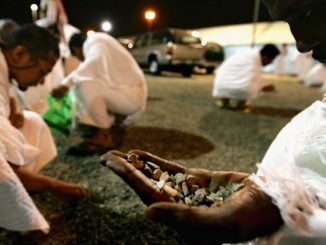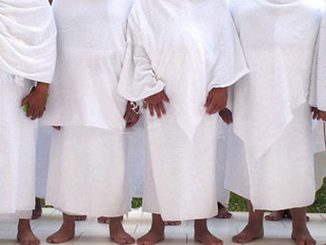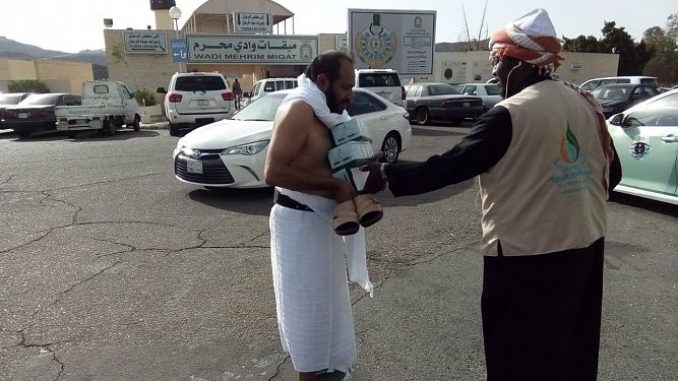
A Report on the issues of Hajj
By Sheikh Khalid Bin Abd Al Aziz Al Hueiseen
Compiled by: Abu Mujahed Al Maziani
Upon arriving at the Miqat :
1. Taking a bath in preparation for Haj or Ummrah is only recommended and not compulsory. It will be accepted for one to take a bath at home.
2. One may remove the extra hair that is only allowed to be removed (such as the mustach) or cut the nails. But trimming the beard is not allowed (there are 15 hadeeth establishing the necessity to grow a beard). It is a major sin to shave the beard.
3. It is allowed for one to only make Wodu upon Ehram.
4. Besides taking a bath in preparation for Ehram, one might remove the hair that is permitted to be removed such as trimming moustache, removing under arms and pubic hair, as well as cutting nails. As for the beard, it must be kept without trimming while the head to be left till shaved after completing the ritual either Ummrah or Haj.
5. A number of scholars saw the possibility of making Taymum in case water was not accessible for a bath.
6. The valid bath should be pouring water over the whole body including the head.
7. Using soap or other cleaning material such as Sidr leaves, only water suffices.
8. One must retake the bath in case he/she took one at home but had to spend overnight before arriving at Miqat and thus arrived next morning.
9. One is not at fault if arrived at Miqat but could not take a bath due to very cold or hot water.
10. Taking a bath in preparation for Ehram is not one of its conditions as some understands.
11. A man must take off all regular clothes that are swen (even under wear) as well as the head turbon.
12. A man must then use two pieces of cloth one to wrap around the waste to cover the Awara (parts of the body which must not be revealed for strangers) and the other to put on the shoulder.
13. It is recommended to use white color but any other colors are acceptable.
14. It is permissible to fix the cloth around the waste using a belt or the like. A number of scholars saw using buttons as unacceptable.
15. One may change or wash the pieces of cloth when needed.
16. A man may use perfume on his head and beard according to Sunnah before taking Ehram (based on a hadeeth reported by Bukhari).
17. The pieces of cloth are not to be perfumed though, only the body specially head and beard.
18. A woman during Ehram is allowed to use her regular clothes except what was not permitted such as Niqab.
19. A woman during Ehram is allowed to use socks but not gloves.
20. She is not also allowed to wrap her hands in a cloth similar to gloves but she may insert her hands into her Jilbab.
21. Rulings of Ehram for children are similar to those of the adults either male or female.
22. The statement of Niyah (intention) is as follows:
23. Labyak Allahum Hajan. In case one takes the Niyah only by heart without pronunciation, it will still be valid
24. One takes the intention saying Labyab Allahum (yahel) while in the place where he/.she prayed. It might be taken as soon as the means of transportation began moving.
end of article : arriving at the Miqat
A Report on the issues of Hajj
Tags :
